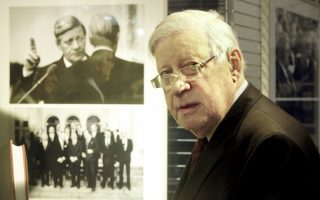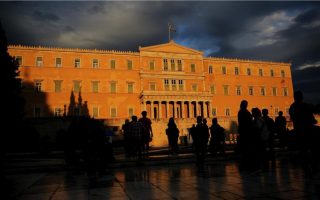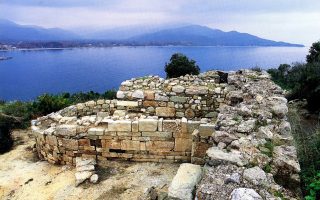Learning from the past

Constantine, the former king of Greece, is possibly one of the most talked-about figures of the country’s recent history, as disparate and fervently opposed forces came together – whether consciously or not is irrelevant – and rid the country of what they viewed as the supervision of the Crown.
In an interview on Skai TV earlier this week, following the publication of his three-volume biography, “Untitled,” Constantine completed his personal account of events that have marked Greece’s modern history so indelibly.
The issue is not whether there are still Greeks who are in favor of the republican system or of a constitutional monarchy – such trends can be found everywhere, with few exceptions – but that by challenging the Crown, the Greek political system exposed its deepest disorders. Of the political forces that were around at the time, only the far left was ideologically opposed to the monarchy, though it was in absolutely no position to overthrow it alone. The change in regime came about because of the actions of certain individuals who theoretically represented the conservatives, the majority of whom were pro-monarchy.
The military dictatorship that seized power on April 21, 1967 claimed to have been spurred on by patriotic sentiment and also by efforts to ensure that the communists never ascended to power. That regime, therefore, was acting on the assumption that either Constantine was not patriotic enough or that he – and the leaders of the mainstream parties – had failed to appreciate the magnitude of the communist threat. The character of the coup was therefore very anti-monarchy, regardless of what its apologists claim.
In his interview, Constantine said his main concern at the time was to ensure that his reign was not marked by bloodshed. His critics will argue that he was responsible for the bloodshed that came later as a result of the radicalization of certain junior officers in the junta regime, because he swore in the first government of colonels and abandoned the country after the failure of his December 13, 1967 countercoup.
Throughout the dictatorship, the king preached the path of legitimacy and refused to have any cooperation with the regime, which explains why the leaders of the coup would speak about a “revolution that brought justice.” He expected to return to Greece after the junta’s fall to swear in a new government, to restore law and order, and to call a referendum if necessary. Events, however, took a different turn.
Today Constantine makes it clear that he has nothing to do with politics, political parties or various organizations. However, a calm and analytical look at the events that took place back at the time would not do any harm.




